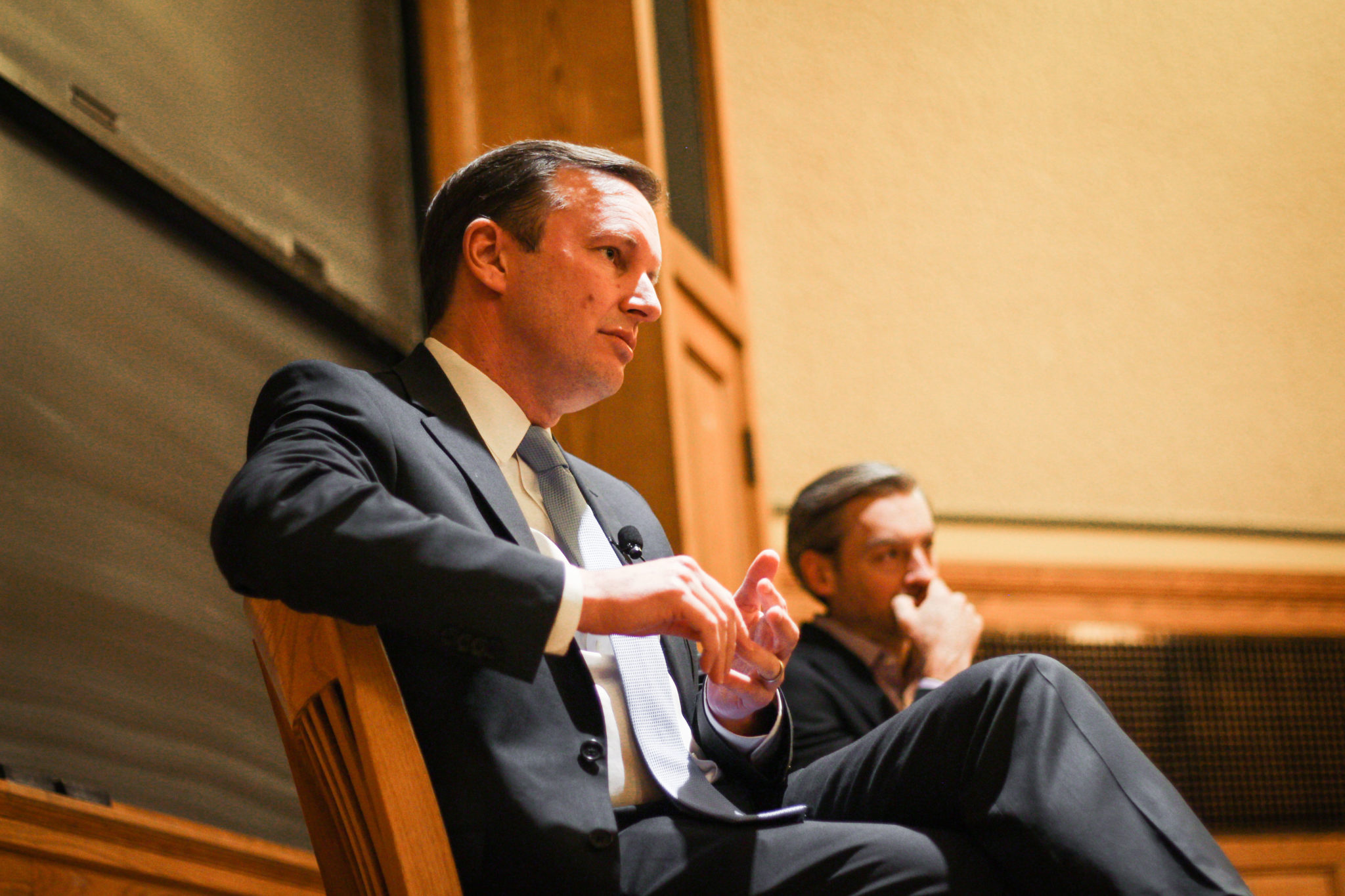Sen. Murphy participates in medical school misinformation roundtable
Senator Chris Murphy heard from members of Connecticut and the Yale community on how to best fight medical misinformation.

Yale Daily News
The Yale School of Medicine hosted a roundtable with professors, state and local public health officials and Connecticut Sen. Chris Murphy to discuss new legislation aiming to combat medical misinformation and to bolster preparedness for future public health emergencies.
On Monday, the School of Medicine convened a Public Health Misinformation Roundtable at the Harkness Ballroom which was attended by Senator Murphy, State Director of Public Health Manisha Juthani, New Haven Health Director Maritza Bond, School of Public Health Dean Sten Vermund and Institute of Global Health Director Saad Omer. Attendees discussed the most efficacious measures that should be included in Murphy’s Public Health Information Act.
“Throughout this pandemic, the impact of misinformation has been devastating,” Murphy wrote in a press release. “Rumors and conspiracy theories about the efficacy of masking or the safety of vaccines still run rampant on social media and have caused thousands of deaths that could have been prevented. This legislation will help us get smart about how to tackle misinformation and effectively promote science-based health information, especially as we continue fighting COVID-19 and prepare for future public health emergencies.”
Murphy’s bill focuses on rebuilding trust around the CDC as well as ensuring that people take the public health advice that they get seriously. He cited a study of 18,000 Americans which found that 5 percent of respondents believe that the COVID-19 vaccine has a microchip, 7 percent that believe it contains fetal tissue, 8 percent believe that it will change their DNA and 10 percent believe it will make a person impotent.
His bill aims to create a Public Health Information and Communications Advisory Committee within the Department of Health and Human Services. The committee would make recommendations on methods for scientific and medical information to be communicated during a public health emergency.
Officials at the event told Murphy that an integral part of rebuilding trust is focusing on building public health infrastructure from the community up instead of from a top-down approach.
Bond and Juthani both emphasized the work they have done at the state and local level to encourage residents to get vaccinated. They both pointed to town hall meetings that they hosted with members of the New Haven community to improve trust in vaccines.
Juthani also discussed how to better communicate scientific information to the community, suggesting that public health officials should address measures like masking and social distancing as though they are a doctor providing a prescription.
“Monday morning’s event gave Sen. Murphy the opportunity to hear firsthand how physicians and researchers have done their best with the information they have had at any given time during the pandemic,” Juthani wrote to the News. “Science is constantly changing and evolving, and we need to learn from experiences in this pandemic how to communicate that best. Building upon this understanding can be one of the first achievable goals with the Promoting Public Health Information Act.”
Members of the roundtable also raised the importance of factoring social media into future strategies to counter misinformation. Bond emphasized the importance of building a strong network of people to counteract misinformation that people may come across on social media sites like Facebook.
Bond also spoke to the importance of having the government fulfill its role as a convener and bring people together so that they can learn trusted public health information. She further emphasized that local governments should receive assistance in bolstering their networks and transparency.
Brian Marcus, Yale School of Medicine Pediatric Cardiology Fellow, also pointed out that the medical community has historically had issues with transparency and unethical medical trials. Marcus told Murphy that part of this bill should work to acknowledge those issues to foster future trust in federal and state public health institutions.
“It is crucial for legislators to have opportunities to both share and receive feedback on relevant issues, particularly those that relate to public well-being,” said Marcus. “Senator Murphy’s desire to combat misinformation is evident. He is committed to allocating state resources to both limit the spread of harmful misinformation as well as to actively promoting evidence-based recommendations to his constituents.”
Murphy was elected to the Senate in 2012.







